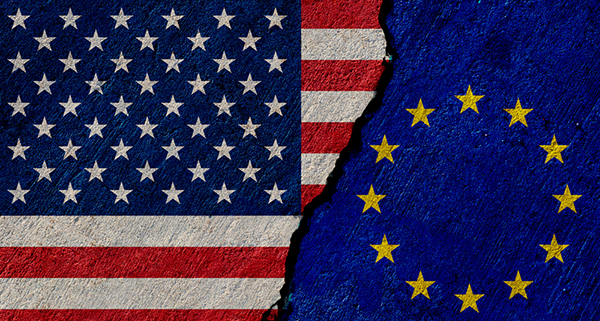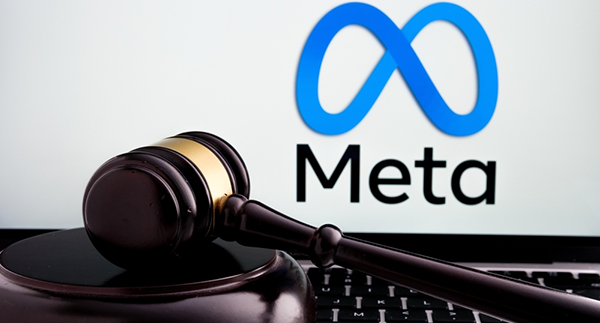 |
||||||||||||
|
||||||||||||
| US And EU Join Forces on AI Research, Regulation and Innovation |
 |
| The White House and the European Commission started their first official meeting to discuss the development of AI technology. It is the start of a partnership and research initiative to speed up AI tech's evolution and establish regulations. Each institution hopes to prepare its governments to handle the emerging tech. After the conclusion of the meeting, both governments gave each other sixty days to determine how AI is applied ethically to various subject areas. They broke down the research into five categories:
"There are potentially real benefits from large language models and applying those to various social problems, specifically writing more secure code to make sense of a lot of the data and insights out there," a senior administration official said. "We want our economy to get those benefits, but there's also real worry about it. The same vulnerability analysis one might do for cybersecurity, one might also do to find vulnerabilities to hack." |
The industry is experimenting with generative AI technology, but many questions remain about how it will affect the ad ecosystem. In the EU, the emergence of ChatGPT has already upended their previous regulations for AU. The Artificial Intelligence Act, proposed by the European Commission in 2021, banned some AI applications such as social scoring, manipulation, and some instances of facial recognition. In addition, some critics were vocal about the risks of ChaGPT despite its benign use. For example, Bing's search engine powered by ChatGPT threatened a researcher with "hacking and ruin." "These systems have no ethical understanding of the world, have no sense of truth, and are unreliable," said an AI expert and vocal critic Gary Marcus. While generative AI is beneficial for writing copy and creative, some professionals worry that the technology will snatch away their jobs. Although, big tech companies are already hopping on the bandwagon. Meta, Google, and Snap are integrating generative AI tools into their digital media and advertising strategies. Meta's chief business officer Marne Levine said, "We've leveraged AI investments to launch a new feature that allows advertisers to apply small enhancements, like adjusting brightness and aspect ratio, to test placements, to improve creative performance. And so, what this means is that advertisers can get smarter, faster, on what campaign creative combinations drive the best results." Even smaller creative and media agencies are experimenting with AI programs like ChatGPT and DALL-E. Ellen Jantsch, CEO of Tuff, alludes that ChatGPT generates 100 topics for creative strategists to use as a jumping-off point before narrowing things down to 10-15 topics. This is a process that can take a person hours to generate. Although, according to a survey by DMEXCO, nearly three-quarters of 500 industry pros found generative AI irrelevant to their business. The minority who found use in the tech saw value in generative AI's ability to optimize organic search, customer service, and conversational marketing. "Around one in ten of those surveyed in the areas of marketing, communication, and media may already be testing AI in terms of content production and search engine optimization, but most communicators are still cautious or even skeptical about actually using AI in their companies," a DMEXCO representative said. |
| African Regulators Unify to Grill Big Tech |
 |
| Big tech companies' global investigation widened further after several African regulators announced their plan to interrogate the market conduct of global digital firms such as Meta and Google. It is not the first time regulators have investigated big tech companies for their marketing conduct. They have been investigated multiple times and faced the consequences of antitrust violations in the U.S. and Europe. This time several African countries are taking the helm in the investigation. Regulators from Kenya, Egypt, Mauritius, Nigeria, South Africa, Morocco, Gambia, and Zambia started the investigation because they were concerned about Africa's competition and consumer welfare. The Common Markets of Eastern and Southern Africa (COMESA) Competition Commission, representing 21 countries, is also part of the new working group. "The members identified the need to collectively interrogate market conduct that has been the subject of investigation and remedial action in other international jurisdictions but which remains unattended in African markets to the detriment of African consumers, businesses, and economies," said Dr. Adano Wario, the acting director-general of Competition Authority of Kenya, one of the member states. |
| The era of the Triopoly may be coming to an end. At least, that is the global market's desire. Governments from several continents have investigated big tech's market and data practices. Others have already made outright regulations that big tech breached. For example, The E.U.'s GDPR altered how big tech and other publishers conduct business. Google Analytics was a major violator of the E.U.'s GDPR. The European Center for Digital Rights received complaints about data transfers between the U.S. and Europe because of Google Analytics. In addition, more recently, Australia has been working on updating its federal privacy regulations in line with the GDPR. The proposal directly responded to a significant data leakage from last year and a consensus from consumers who felt their data needed to be adequately protected. These African countries aligning to investigate big tech is further proof that the ad tech ecosystem is working to move away from the big tech monopoly. The established committee wants to ensure that big tech innovations help the market but not to the detriment of their domestic platforms. "Digital firms with a global presence may bring innovations to African markets, but they may also stifle the development of domestic platforms. Therefore, there exists the potential to positively impact our economies by ensuring adequate enforcement in this evolving space, including having a clear understanding of the barriers to entry and expansion affecting local platforms," said Wario. |
| Is Apple's ATT Prompting a Recession in the App Economy? |
 |
| When Apple decided to take a stance on privacy, many warned of unintended consequences for small businesses and app developers. At least one industry pundit, Eric Benjamin Seufert, says that the privacy setting has prompted a recession within the social media sector. If true, it’s a cause for concern, as social media commerce is expected to deliver $1.3 trillion in revenue worldwide. It’s also a critical component of the SMB marketer’s growth strategy. Immediately after the announcement of ATT, Meta responded angrily, taking out full page ads that declared Facebook is “standing up to Apple for small businesses everywhere.” With 10 million small businesses relying on its platform to reach and engage customers, Meta said that Apple’s new privacy updates would devastate this all-important sector of our economy. ATT certainly immediately impacted the revenue of Snapchat, Facebook, Twitter and YouTube, as was widely reported back in 2021. Snapchat is still struggling, and its stock has declined by 90%, according to Seeking Alpha. In its Q3 2022 earnings report, Meta noted “ad signal loss” as a “challenging dynamic.” In his article, The App Tracking Transparency Recession, Seufert argues that Apple has “created a recession within the social media advertising economy and certain other advertising-dependent categories.” One of those categories is mobile gaming, which contracted by 6.4% in 2022 and will decline further this year. Direct-to-consumer brands are another, as customer acquisition costs (CAC) post-ATT have risen precipitously. For instance, before ATT, Plum Deluxe, a loose tea brand, paid about $27 to acquire a new customer. Now they pay $270, according to the Wall Street Journal. With CAC costs sky high on social media, 50% of eCommerce brands polled by WSJ have cut their Facebook ad spend by 25% or more. |
| Seufert warns that the impact of ATT on social media earnings and the SMB companies that rely on them to acquire new customers at an affordable price is just a precursor of what’s to come once third-party tracking cookies go away for good. Put another way, the pain felt by Meta, Google, and Snapchat and the brands that depended on them may be felt more broadly in the economy in the post-cookie world. But not everyone agrees that the ATT is that dire. Privacy, they say, means brands and platforms need to do a better job at explaining why they want to track users and the value they’ll get from saying yes. Consumers are not fond of an app asking to track them without knowing why. Rather than ask for permission to track at the time of the install, maybe they can wait until doing so will enable the consumer to reap a benefit. And there are some winners in the ATT world. Retail media is clearly benefiting from it, as many enable marketers to use the retailer’s first-party data to target users as they shop and provide attribution. Advances in ML and contextual targeting mean tracking may not be all that necessary. Some say Apple’s privacy tactic shouldn’t be blamed for all the pain the market is feeling. “ATT didn't just destabilize CAC,” said Phillip Jackson, Co-Founder of Future Commerce, a retail media research startup focused on helping eCommerce businesses create strategic vision. “It revealed the ugly truth that many brands aren't brands at all - they are little more than a beautiful digital equivalent of the green market or swap shop vendor. When they are priced out of affording space to meet customers where they are, the brand ceases to exist altogether.” |
| Around the Water Cooler |
| Here's what else we're checking out... Death of undifferentiated SSPs not hitting all ad tech: Magnite and Pubmatic are holding on among a sea of SSPs who have had difficulty weathering ad tech's latest storms. (ADWEEK) FTC cracks down on privacy offenders: The FTC is banning online counseling service BetterHelp, from sharing consumers’ health data for advertising. The company is required to pay $7.8 million to consumers for revealing sensitive data with Facebook and Snapchat for advertising after promising to keep it private. (Federal Trade Commission) DOJ scoffs at Big G: Google continues making moves to further delay the DOJ's antitrust case against them. The tech giant made a bid to move the case to New York, which has been opposed. A transfer would mean no trial until 2025, but the DOJ wants swift action. (yahoo! news) Zelto gets scooped up: Japanese marketing tech firm Geniee paid about $70 million in cash to acquire rev op platform Zelto — formerly known as AdPushup (TechCrunch) The kids are alright: Measurement, as a business, is thriving. Just look at DoubleVerify's Q4 results stating that the company grew revenue in Q4 by 27% to $133.6 million. Expansion into CTV, social media, and retail media networks has also paid off. (bussinesswire) |
| @{optoutfooterhtml}@ |










